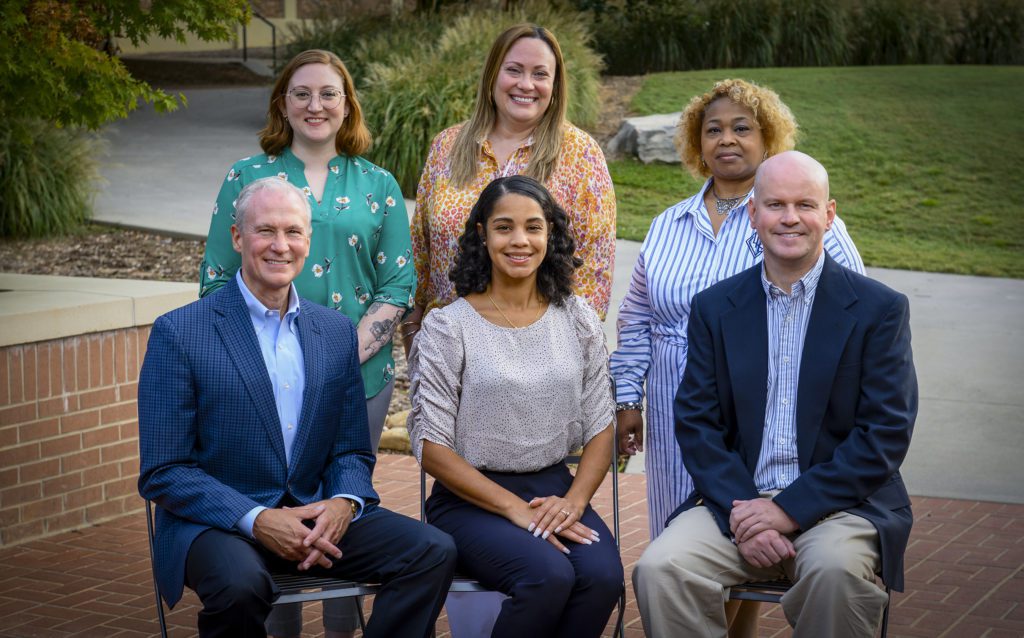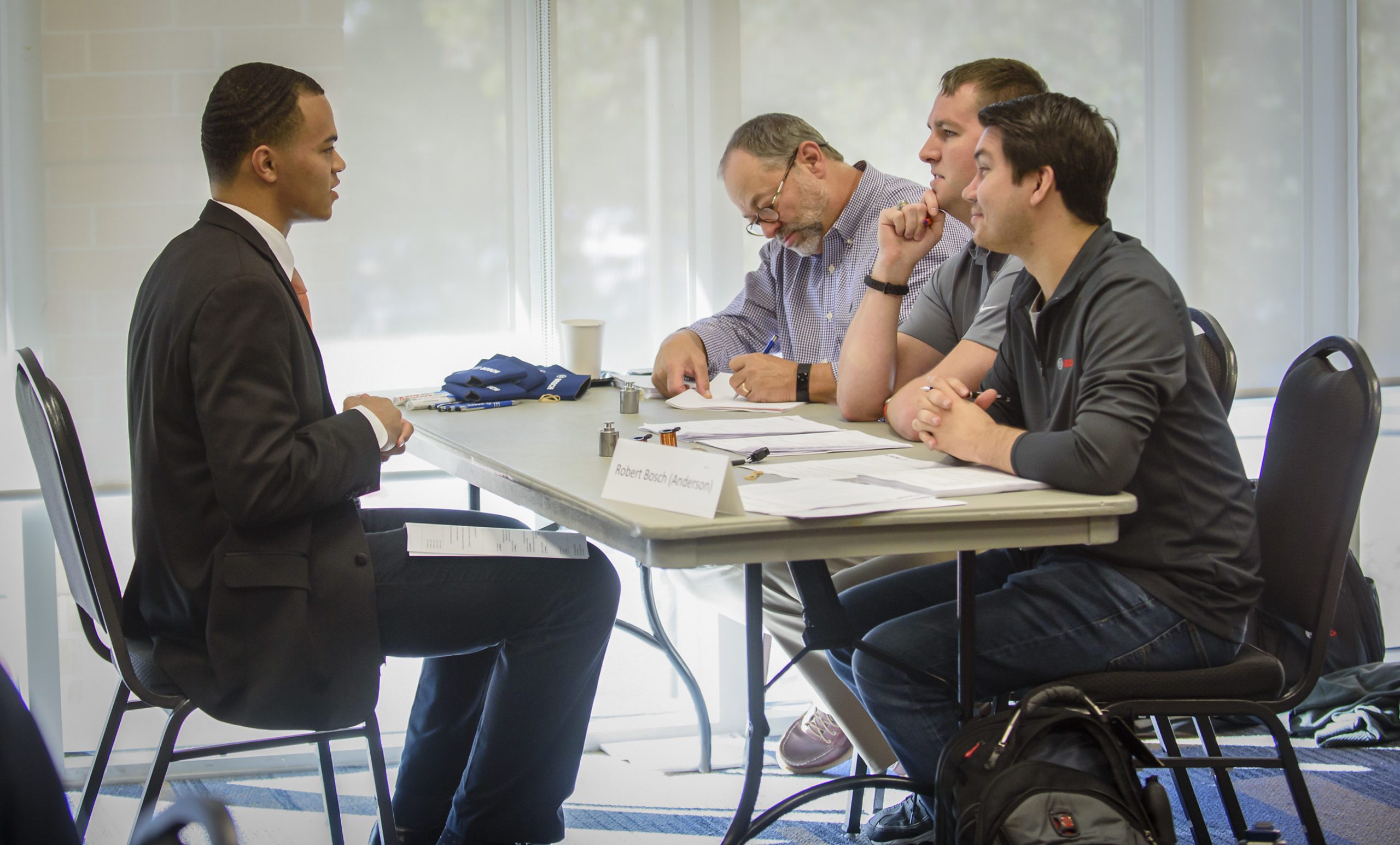
Clemson program celebrates five decades of hands-on student learning opportunities designed to boost the value of a Clemson degree.
Hands-on learning does more than teach. It grows understanding.
The engaged-learning experiences offered through Clemson Co-op allow students to take classroom knowledge and apply it with one of hundreds of corporate partners. Students spend two to three semesters employed full time, with pay, and participating companies connect with motivated young learners.
Tell me and I forget
Show me and I remember
Involve me and I understand
– Chinese proverb
Clemson’s Cooperative Education Program began in 1972 with 19 students. It has grown to become one of the country’s largest voluntary Co-op programs, with more than 1,000 students and 275 company partners participating last year. In 2021, it was named one of the country’s top 20 cooperative education programs by U.S. News and World Report. More than 1,300 Clemson students enroll each year with partner companies from more than 25 different states, with a 93 percent completion rate.
The program celebrated its 50-year milestone during an August 25, 2022, event held at the Madren Center on Clemson’s main campus.

We are part of a university that places a high value on experiential learning.
Jeff Neal, Cooperative Education Program director
Program director Jeff Neal said he’s proud to be a part of an academic program that has provided robust multi-rotational engaged-learning experiences for Clemson students.
“Thousands of Co-op students have completed the program and gained a greater understanding of the theories involved in their disciplines by applying them in the work setting,” said Neal. “For those students who have chosen to do the program over this half-century, it’s been a game-changer for how they learn and develop as professionals. Many of these students have gone on to work for their Co-op companies, so it’s been a game-changer in that respect too.”
Co-op by the numbers
Co-op students have a unique opportunity to learn about our company culture and receive multiple on-the-job trainings before making decisions about what they want to do full time. The program is mutually beneficial because the rotations also allow GE to get to know the students before graduation, as well as help mentor the students.
Amy wallace, Clemson ’03, Account Manager and Campus Recruiting Leader, GE, Power Gas Power systems
Opportunities across many majors
The program was initially created for engineering students but now involves students across most majors at the University. Participants gain invaluable experience at a wide range of companies, from PespiCo and Campbell’s Soup to BMW and Delta Airlines, to South Carolina business locations, including BorgWarner and Robert Bosch LLC Anderson. Typically, participants alternate semesters working at their host companies between semesters of classes, usually during their junior and senior years.
Chace Graham, who graduated from Clemson in 2018 with a degree in mechanical engineering, was hosted by the Schaeffler Group, a bearing manufacturer, during his time in the program. He said participating in Co-op eliminated any fear he’d chosen the wrong major.
“It was very critical because up to that point, I thought I wanted a career in engineering, but I didn’t know for sure,” said Graham. “I also didn’t know what an engineer’s day-to-day life would be like, but I gained that valuable experience through the cooperative education program. It renewed my interest in engineering and my desire to obtain a degree. It also allowed me to determine what things I valued in a job and helped narrow the scope of jobs I applied for upon graduation.”
Graham now works as a product design engineer for JTEKT, an international automotive engineering company, and serves as a mentor at the company for the new generation of Co-op Program students.
More than 200 students enter the program each semester and their experiences are monitored by a staff of advisers to ensure a successful teaching and learning process. Students receive a certificate and academic recognition on their transcripts upon completion of the program.

It’s a mutually beneficial arrangement for participating students, the University and company partners. Companies that partner with Clemson for the program serve as teaching partners of the University, and the Co-op Program experience becomes an integral part of the student’s education. Reciprocally, participating companies gain higher visibility on campus and can connect with motivated young talent, which can, among other things, reduce costs and time associated with recruiting and training.
Three companies have been with the Clemson program since its beginning: GE, Dominion Energy (formerly South Carolina Electric and Gas) and Duke Energy.
“For more than 50 years, our partnership with Clemson University’s Cooperative Education Program has helped us to invest in the future of our company and the communities we serve,” said Bill Turner, general manager of electric distribution for Dominion Energy South Carolina. “We understand that our greatest resource is our people, and this program plays an integral part in cultivating and expanding our increasingly dynamic and diverse workforce here in South Carolina. We look forward to continued collaboration and success.”
It allows us to participate in creating and developing the next generation of engineers and support professionals through our very successful partnership with the Clemson Co-op Advisory team.
Vanessa Thrasher, senior human resources partner, Robert Bosch LLC
Improved student outcomes, real corporate benefits
Vanessa Thrasher, senior human resources partner at Robert Bosch LLC, which hosts the most students each semester (often more than 30), said the Co-op Program has connected the company to a pipeline of talented engineering graduates and potential employees.
“Bosch is a leading global supplier of technology and services, employing over 400,000 associates worldwide. Our Anderson facility has partnered with the Clemson University Cooperative Education Program for decades,” said Thrasher. “We have many organizational leaders today, both in technical and commercial business groups, who are Clemson alumni and former Co-op students themselves.”
Thrasher said Co-op Program students continually contribute at an above-average level and that the program does more than introduce high potential talent for future employment opportunities.
“It also allows us to participate in creating and developing the next generation of engineers and support professionals through our very successful partnership with the Clemson Co-op Advisory team,” she said.
The growing impact of the program year after year is a remarkable feat for an initiative launched when Richard Nixon was president. Eighty-four percent of surveyed Co-op students who graduated in May of 2022 had accepted full-time positions or had been accepted to graduate school before graduation. Within a month after graduation, that figure rose to 88 percent.
“We are part of a university that continues to place a high value on experiential learning,” said Neal. “For that we are grateful.”
